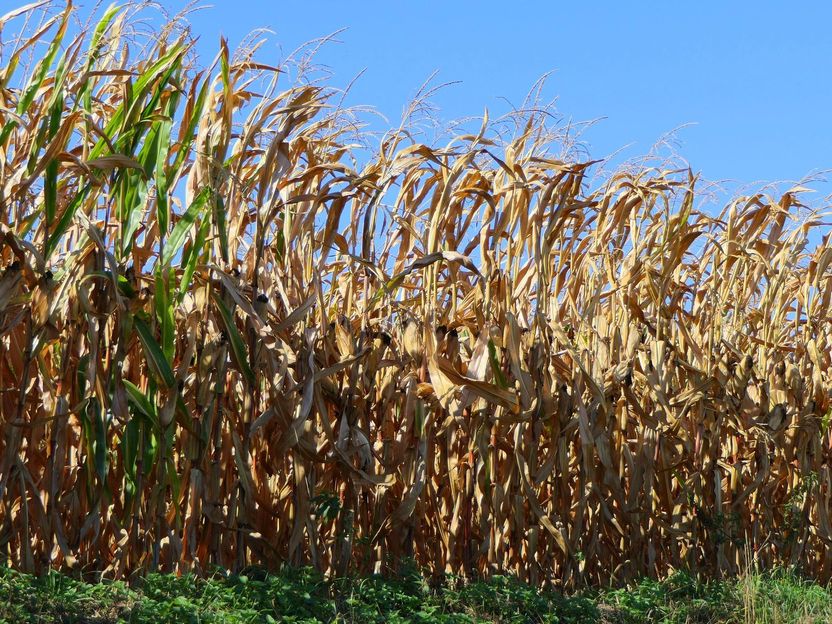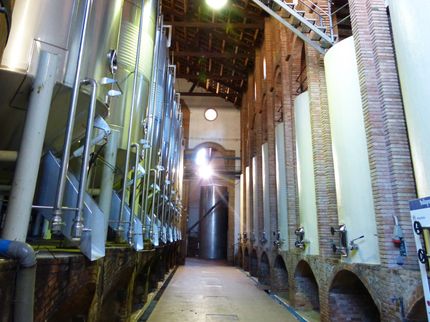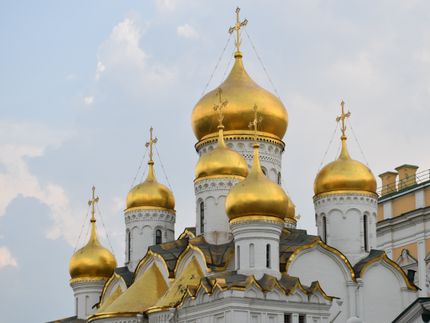Rethinking food supply: learning from nature
Advertisement
The current situation in Ukraine presents us with the political and environmental challenge of freeing food production from overdependence on fossil fuels and imports. According to theUN World Food Programme, Russia and Ukraine together account for nearly 30 percent of global wheat exports, and according to the Masachusetts Institute for Technology 'sObservatory of Economic Complexity, Ukraine alone produces 13 percent of global corn and 45 percent of global sunflower seed oil exports in peacetime.

Uschi_Du / Pixabay
In addition, the Ukrainian government announced March 9 that it was banning exports of rye, barley, buckwheat and millet until the end of the year, saying farmers must now "fight instead of plant." As a result, the World Food Program sounded the alarm about a global hunger pandemic.
Foretaste of the future
According to the 2021 Mintel Sustainability Barometer, 28 percent of respondents from 16 different countries identified "food shortages due to drought or crop failure" as one of their top five environmental concerns; by comparison, plastic pollution received 52 percent of the response votes. To be sure, the current disruption of food production is not due to environmental factors, but to military intervention. Nevertheless, it provides a foretaste of what we could expect in the future due to climatic factors.
According to the Woodwell Climate Research Centre, crop losses will be nearly 5 times more common by 2030; major failures in rice and wheat harvests are already expected to occur every other year. This is because both crops are heavily dependent on irrigation.
Among countries that have imposed severe sanctions on Russia, many remain dependent on Russian oil. In many states, this has brought to light the agricultural dependence on fossil fuels. In addition, Russia is the world's largest exporter of fertilizers. With prices currently fluctuating between 600 to 800 euros per ton, farmers will be forced to switch to organic fertilizers from livestock. Some may try to use more organic fertilizer from local livestock or from anaerobic digesters - hoping that the Ukraine conflict will lead us to a clean, local supply, at least in the medium term.
Scientific approaches to solutions based on natural principles
The Ukraine conflict highlights the general need for more reliable and shelf-stable food. In Jinghai, a district of the Chinese city of Tianjin, this is already being tested on rice crops. There, local scientists have developed a salt- and alkali-resistant "Sea Water Rice" to take advantage of the local rising sea levels while feeding the growing population.
In the 2021 Sustainability Barometer, 64 percent of global consumers assigned genetically modified foods designed to withstand global warming and parasite infestations a medium to high impact on climate. The bigger obstacle, however, is a lack of trust in science: less than half of respondents (45 percent) believe that "science can find solutions to climate change."
However, because nature is not inexhaustible, we depend on scientific innovation to support food security.
Sustainability management in the food industry comes down to three key practices:
- Circular economy through reuse of by-products and waste products.
- Use of renewable energy
- Maintenance of diverse ecosystems
Interaction with nature
The circular economy focuses on the prudent - and indeed lucrative - desire to use resources efficiently. An interesting example of this is China's Rizhao Eco-Industrial Park (REDA): there, the state is focusing on industrial symbiosis, as outlined in the country's Circular Economy Promotion Law. For example, a fertilizer factory is fed with vinasse, a byproduct of sugar, from a nearby beer brewery. British Sugar also uses the circular economy at its Wissington site, converting sugar beet processing byproducts into organic products to correct soil acidification, beet sugar syrup into renewable fuel and yeast into animal feed.
In Finland, the Solar Foods company is following "nature's script" and sourcing its resources "directly from the air." Using bioprocess technology and renewable energy, it produces Solein protein from solar energy and carbon dioxide in the air.
Safeguarding diversity
In addition to the sustainable use of resources, maintaining diversity also plays an important role. This is exactly what the Svalbard Global Seed Vault has taken to heart. The project is part of the World Trust Fund for Crop Diversity and provides for the long-term storage of seeds to preserve and protect the species and variety diversity of crops. Their ethos is: "Crop diversity is the foundation of our food production. It enables our food crops to adapt to impending climate and population changes. Seeds contain the raw material scientists need to improve the yield, hardiness or disease resistance of the varieties farmers grow."
Diversity doesn't just apply to staple crops, however. In Bordeaux, France, VitAdapt is planting new grape varieties to combat climate change and break the "hegemony" of 12 French grape varieties that currently account for 80 percent of the market. After all, there are some 6,000 varieties of Vitis viniferea - the common grapevine - that could be explored and exploited.
Efficient use of natural resources
Nature can teach us a lot about efficient resource use. Crickets, for example, contain 60 percent protein and reach their fully developed stage in just seven weeks. Looking only at feed use, they are 12 times more efficient than cows at producing protein, suggesting that they could at least complement current production approaches.
If we want to continue raising cattle, feeding them seaweed - as Volta Greentech in Stockholm is doing - can also reduce methane emissions from livestock by 80 percent.
Admittedly, both possibilities still sound like experimental dreams of the future to most. A greater devotion to nature and its mechanisms can and will help us break free from the heavy dependence on environmentally damaging farming methods.
Note: This article has been translated using a computer system without human intervention. LUMITOS offers these automatic translations to present a wider range of current news. Since this article has been translated with automatic translation, it is possible that it contains errors in vocabulary, syntax or grammar. The original article in German can be found here.



























































